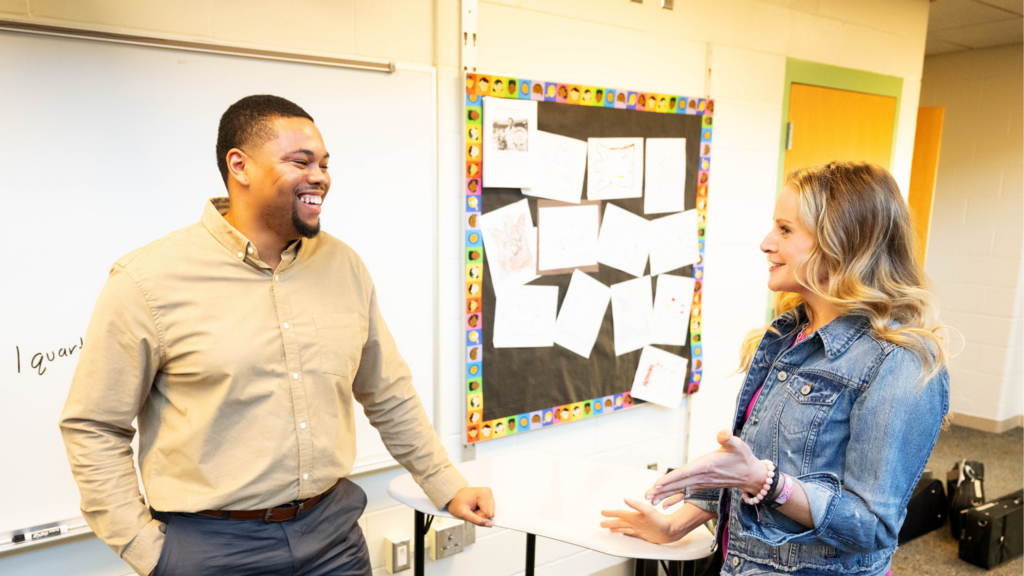Resources
Putting Research Into Practice
Through the Practice Briefs on School Mental Health project, we offer free, concise summaries based on the latest research, designed for K-12 educators and school mental health professionals. Each brief is written by a national expert and reflects current best practices.

Best Practices in Clinic and School Collaboration to Support Students with Challenging Behavior
Explore best practices for school-clinic collaboration to support students with challenging behavior, from referral to intervention and lasting behavior change.

Building Mental Health Literacy in Schools
Mental health literacy (MHL) education can improve mental health outcomes in adolescents. In this practice brief, learn why MHL programs are critical in K-12 schools and the best practices for implementation.

Screening Students for Trauma
This practice brief discusses evidence-based trauma-informed screening tools, consent considerations, and implementation tips for school-based mental health professionals and educators.

Thriving Educators, Thriving Schools: Practices and Policies for Promoting Teacher Well-Being
This practice brief provides practical, research-backed strategies to promote educator well-being at every level—from classroom routines to districtwide policy. Learn how schools can create supportive environments where both students and staff flourish.

Twice Exceptional Learners
This practice brief offers a deep dive into the key components of supporting twice-exceptional learners, including identification methods, instructional and relational strategies, and actionable implications for K-12 school-based professionals.

Building Strong Foundations: Supporting Growth through Parent-Child Interaction Therapy (PCIT) and Teacher-Child Interaction Training (TCIT)
This practice brief spotlights PCIT and TCIT, two impactful programs that empower caregivers and educators to navigate challenging behaviors while enhancing their ability to foster resilience and meaningful connections with young children.

Bullying Prevention and Intervention
With nearly 1 in 5 students in grades 6–12 experiencing bullying at school, the need for awareness and action has never been greater. This practice brief equips educators and school mental health professionals with the knowledge and tools to recognize bullying, understand its impact, and implement effective interventions to create safer learning environments.

Non-Suicidal Self-Injury: Considerations for K-12 Educators
Non-suicidal self-injury (NSSI) is prevalent in children and adolescents and is associated with increased risk for a myriad of negative mental health outcomes. Despite the prevalence of and risks associated with NSSI, knowledge of NSSI is limited and stigmatized within educational settings. This practice brief includes a general description of NSSI, prevention, and assessment strategies including developing a school protocol, intervention strategies, and additional resources.

Interventions to Improve Educator Well-Being
Educator well-being and social, emotional, and behavioral competencies have been linked to student academic, behavior, and social-emotional outcomes. In this practice brief, learn interventions that can increase educator wellness and help teachers deal with job-related stress.

School-Based Mental Health Services for Students Served Under the IDEA
Learn six evidence-based steps for securing mental health services in schools through IDEA special education programs, including prevention, identification and intervention strategies supported by case law.
Pagination
